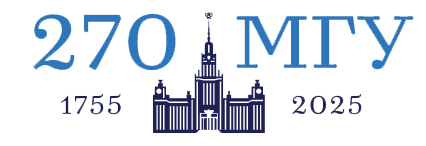You are here
Laboratory of Programming Technologies
Head of the laboratory: Mashechkin Igor, Professor, Dr.Sc.
The Laboratory of Programming Technologies was established in 2001. The Laboratory's team consists of collaborators and graduate students of Computer System Automation Department that work under supervision of Professor Igor Mashechkin. Recently the team carried out a number of works among which should be noted:
- development of CRAB software system that provides a remote terminal access to BESM-6 computers. In essence, this work was the creation of one of the first domestic operating systems for remote communities which was implemented as the add-on DISPAK operating system kernel. The CRAB system was widespread in the USSR. Dozens of leading academic and industrial centers have used CRAB system. Now we can say with confidence that many solutions used in this system were a starting point original for later mass distribution systems. The work was awarded the Gold Medal of the USSR Academy of Sciences;
- series of works for research and development of multi-functional cross-programming system. It is important to note that a number of similar ideas underlying the system has been subsequently implemented by Microsoft in .NET.
Staff members:
- Popov Ivan, Researcher
- Golovin Sergey, Mathematician
- Tsarev Dmitry, Mathematician
Main Scientific directions
Presently the main scientific direction of the Laboratory is research and development of algorithms and methods for creating data mining software. The relevance of this subject is determined by the presence of a number of important applications that require to analyze large amounts of complexly heterogeneous data. The volume and complexity of such data often do not allow an effective use of traditional analysis means based on methods of statistical analysis, information retrieval and expert knowledge that determines application of data mining means based on machine learning and artificial intelligence methods. A considerable attention in the Laboratory’s research is paid to developing new approaches to the creation of intellectual systems for the following application areas:
- Intellectual systems of user behavior monitoring and analysis that enable to organize a multi-level data collection and consolidation about intranet user work in a single repository. The collected consolidated data is processed by standard statistical methods, as well as new unique data mining algorithms to create user behavior models. This analysis allows one to identify and summarize the main characteristics of computing resources and information structure of the organization, the facts of their misuse, as well as in the early stages, to identify abnormal insider activity which could lead to the confidentiality breach.
- Intellectual server system for spam filtering based on machine learning methods for creating a personal adaptive (incremental learning) models of user correspondence. The developed approach can significantly increase the accuracy of spam detection with approximately zero false positives.
- Intellectual systems for Internet traffic analysis and filtering based on continuous monitoring and categorization of the incoming and outgoing Internet traffic contents in real time. Through the use of machine learning methods, the solution allows one to classify accurately transmitted and received data, to determine flexible personal filtering policy based on the subject of incoming and outgoing information for intranet users. Such system can be used to block access from intranet to unwanted Internet resources, to control Internet usage during the office work and training time, to suppress the leakage of confidential information over the Internet.
- Intellectual systems of electronic document circulation analysis. The solution of this problem involves a comprehensive analysis of text information contained in various forms of electronic documents - emails, files in different formats, Internet traffic and so forth - in order to identify "hidden" patterns. For example, it may be a variety of tasks for classifying, clusterizing and annotating the electronic documents content. It enables one to create a functional prototype of a content monitoring system of an electronic document within a corporate network which would provide (for information security services) tools to identify resource misuse facts and the corporate information leakage.
- Systems of computer-aided analysis of production technological processes. We study the technological process of monitoring problems to detect anomaly situations and the problem of predicting manufactured product quality according to the current characteristics of the production process. In the first problem methods for finding anomalies in time series that describes the process state in time, have been proposed and implemented. The proposed methods allow to identify both individual emissions and atypical characteristic values, and abnormal sequences, and the emergence of new patterns in the behavior of the analyzed process. To solve the second problem, we develop methods for predicting quality and identify the most significant characteristics of the production process, allowing to represent the obtained prediction model as a system of rules that are understandable to an expert and show a high prediction accuracy on real data.
Based on theoretical results obtained in the research process, several innovative software solutions in the field of computer security, with a number of advantages compared with existing analogs, were developed and are currently being improved. It is important to note that these developments have a real practical application in a number of government and commercial organizations. For example, in 2009 a specialized analysis system for IT security was set in operation at the Accounts Chamber of the Russian Federation.
The Laboratory’s work in this area has been noted by various scientific awards and prizes, including the Medal of Academy of Sciences for the best work of young scientists in the category of computer science and automation, has been repeatedly supported by state grants from the Russian Foundation of Basic Research, the Ministry of Science and Innovation, personal grants of the Russian Federation President.



